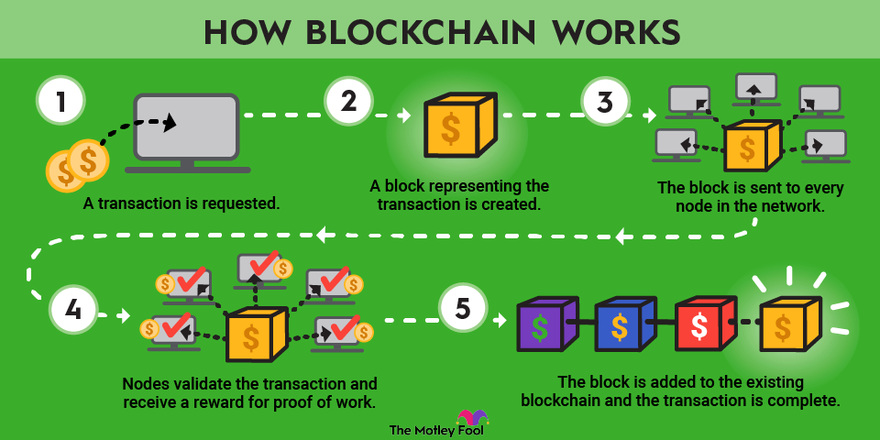JuJu News Hub
Your go-to source for the latest trends and insightful articles.
Blockchain: The Digital Ledger That Could Surprise You
Discover the surprising secrets of blockchain technology and how it’s revolutionizing industries. Don't miss out on this digital game-changer!
What Is Blockchain and How Does It Work?
Blockchain is a decentralized digital ledger technology that records transactions across multiple computers. This ensures that once data is recorded, it cannot be altered retroactively without the consensus of all participants in the network. Each block in a blockchain contains a number of transactions, and every time a new transaction occurs, a record of that transaction is added to every participant's ledger. This decentralized approach significantly improves security and transparency, making blockchain a revolutionary technology in various sectors, including finance, supply chain, and healthcare.
The functioning of blockchain relies on a consensus mechanism, which is a set of protocols that consider a transaction as valid only when it is confirmed by the network participants. The most common types of consensus mechanisms include:
- Proof of Work (PoW): Participants solve complex mathematical problems to validate transactions.
- Proof of Stake (PoS): Participants are chosen to validate transactions based on the number of coins they hold.
Once a transaction is validated, it is added to a block, which is then linked to the previous block in chronological order, creating a secure and immutable chain of data.

Top 5 Surprising Use Cases for Blockchain Technology
When we think of blockchain technology, the first applications that come to mind are often cryptocurrencies like Bitcoin or Ethereum. However, several surprising use cases are emerging across various industries that showcase the versatility of this technology. Blockchain has the potential to revolutionize fields such as supply chain management, where it can enhance transparency and traceability, ensuring that consumers know where their products come from. Another intriguing application is in healthcare, where patient records can be securely stored and shared, giving both patients and providers access to vital information while maintaining privacy and security.
Moreover, blockchain technology is making waves in the realm of digital identity verification. By utilizing a decentralized ledger, individuals can own and control their digital identities, minimizing the risk of identity theft and fraud. Additionally, the entertainment industry is exploring the use of blockchain for copyright protection, allowing artists to maintain ownership over their work while simplifying distribution and compensation. Finally, even the government sector is getting in on the action, with some countries testing blockchain for voting systems, which promises to increase security and transparency in the electoral process.
Can Blockchain Revolutionize Industries Beyond Cryptocurrency?
The term blockchain is most commonly associated with cryptocurrencies like Bitcoin; however, its potential extends far beyond financial transactions. As a decentralized ledger technology, blockchain offers unprecedented levels of transparency and security, which can drastically enhance various industries. For instance, in the supply chain sector, blockchain can enable real-time tracking of goods from origin to destination, thereby reducing fraud and ensuring authenticity. This capability not only fosters trust among consumers but also streamlines operations, potentially leading to significant cost savings.
Moreover, sectors such as healthcare, real estate, and even entertainment stand to benefit immensely from blockchain implementation. In healthcare, secure and interoperable records can lead to improved patient outcomes by allowing seamless information sharing among providers. In real estate, blockchain can simplify property transactions by eliminating the need for intermediaries and reducing paperwork. As industries continue to explore the transformative power of blockchain, it's clear that its impact will be far-reaching, signaling a shift towards more efficient and secure systems.